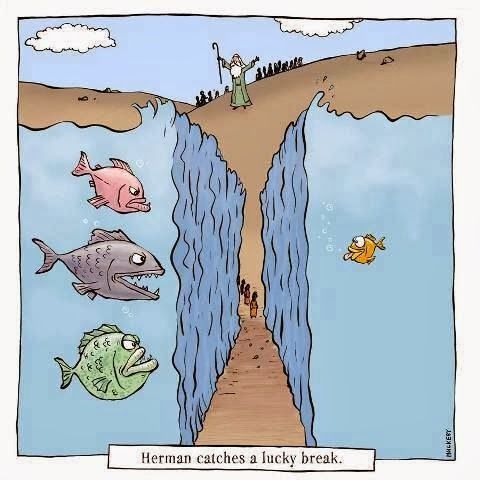Jimmy Higgins
Contributor
- Joined
- Jan 31, 2001
- Messages
- 44,248
- Basic Beliefs
- Calvinistic Atheist
In another thread, I kind of derailed too deep into literary analysis. So, I decided to pull it out here. I haven't studied a lot about Exodus. Genesis was always my go to for fun. But the more I think about Exodus, the more it seems to be just like Genesis... in the sense of another bullshit origin story. I mean we've got two stories of creation, why not two origins of the Hebrews?!
Exodus 4:14 is really interesting because Yahweh just brings up "Aaron the Levite" and Aaron the Levite is coming to see Moses! What I gather here is that Aaron is a known quantity to the reader or audience. Moses' character is being established, but Aaron already is something (well was something, something big enough for the audience to already know of, so as there to be no further explanation as to who this person is)! And he is to be the mouth piece, but Moses is still the symbol and connection to Yahweh.
Which then makes me ponder, Why Moses? Is Moses simply on a Hero narrative of wealth turn banishment turn epiphany turn return? To me, Genesis is parsing different pre-Hebrew together. Is that happening here in Exodus? This gets even weirder when looking at Exo 32:24, where Aaron defends himself noting that a golden calf assembled all by itself. Is this telling us something? Is this and Ex 4:24-26 (God about to kill Moses for not being circumcised, and being saved by the actions of his Midianite wife) not quite as insanely random as they seem?
Exodus 4:14 is really interesting because Yahweh just brings up "Aaron the Levite" and Aaron the Levite is coming to see Moses! What I gather here is that Aaron is a known quantity to the reader or audience. Moses' character is being established, but Aaron already is something (well was something, something big enough for the audience to already know of, so as there to be no further explanation as to who this person is)! And he is to be the mouth piece, but Moses is still the symbol and connection to Yahweh.
Which then makes me ponder, Why Moses? Is Moses simply on a Hero narrative of wealth turn banishment turn epiphany turn return? To me, Genesis is parsing different pre-Hebrew together. Is that happening here in Exodus? This gets even weirder when looking at Exo 32:24, where Aaron defends himself noting that a golden calf assembled all by itself. Is this telling us something? Is this and Ex 4:24-26 (God about to kill Moses for not being circumcised, and being saved by the actions of his Midianite wife) not quite as insanely random as they seem?

